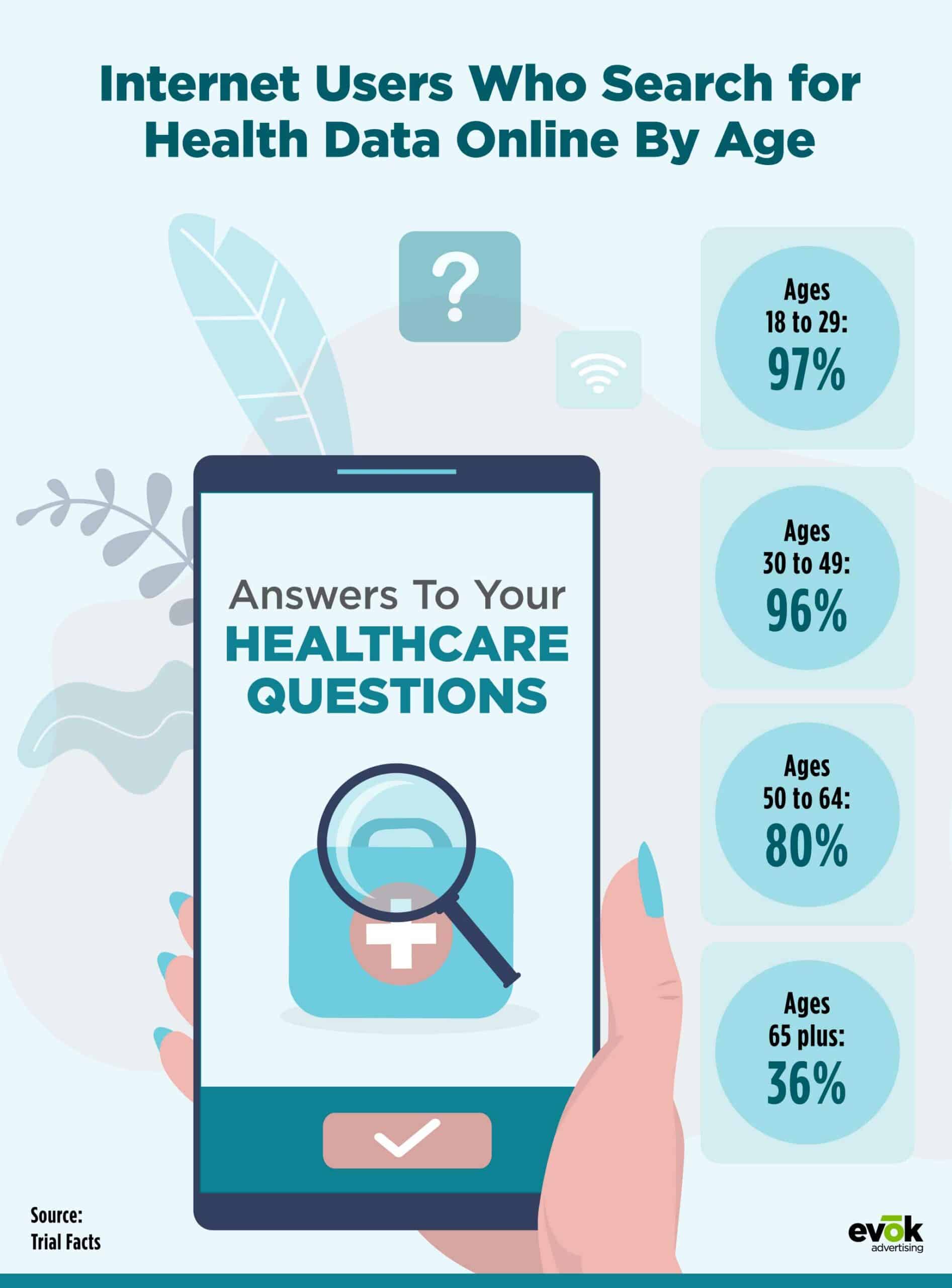
1 Billion Searches a Day: How Your Patients Look for Medical Information Online
It’s hard to believe there was ever a time before search engines like Google. All of a sudden, finding quick answers to questions like, “what are the symptoms of a cold?” or “why do I feel a sharp pain in my left abdomen?” was a far-fetched thought. Fortunately, we live in simpler times now where the answers are at our fingertips at any time of day.
Today, Google dominates the healthcare space by offering quick answers and even home remedies to everyday health problems. So, what does this mean for healthcare providers? It means it’s important for these healthcare experts to share the right content to help their patients without diminishing the importance of doctor visits and annual exams. That’s why we’re dissecting who’s searching for healthcare answers online and what they’re searching for, so you, too, can be the right resource for your patients.
Users Look to Google First for Health-Related Answers
Did you know Google receives more than 1 billion health-related questions every day? That’s about 70,000 searches per minute. These staggering numbers are only growing, and Google’s authority in the healthcare sector affects how users receive and perceive health information in the modern age.
Although Google isn’t primarily a health entity, it is the largest provider of online health information to the public. While search engines are heavily responsible for providing accurate information, much of the content is controlled by search algorithms and advertising policies for both commercial and non-commercial information.
And while health-related searches vary from user to user, there is some commonality between who’s searching for healthcare answers and what type of health-related questions they’re asking.
Who Is Searching for Health Information Online?

If you’ve never searched for a health-related question on Google, then you are probably one of the few. Nowadays, search engines have become the most commonly used tool for instant answers when it comes to health concerns. While 83% of adult internet users search for health information online, the segments by age may surprise you. According to Trial Facts, almost 100% of internet users from 18 to 49 search for health information online.
Another study shows that health-related Google searches also tend to increase from emergency room patients a couple of weeks before their hospital stay. Similarly, more than half of patients search for more information about a medical condition that they eventually go to a hospital for.
Google offers a sense of relief to internet users looking for immediate answers, even if it doesn’t quite entail a treatment or cure. That’s why it’s just as crucial for Google to filter its algorithm to display truthful answers as it is for sources to spread accurate information. As a result, Google created “knowledge panels,” so that verified sources and authoritative information aggregate at the top when searching for medical conditions.
What Kind of Health Information Are People Searching For?
When it comes to the type of health information people are searching for, Trial Facts found that the most common searches are about a specific disease or medical problem. Check out this breakdown below.
- 66% have looked online for information about a specific disease or medical problem
- 55% have looked online for information about a certain medical treatment or procedure
- 47% have looked online for information about doctors or other health professionals
- 45% have looked online for information about prescription or over-the-counter medications
- 35% have looked online for information about alternative treatments or medicines
- 20% have looked online for information about experimental treatments or medicines
So, How Can Your Healthcare Practice Share the Right Content?

There’s a fine line between sharing valuable information through content marketing and diagnosing users through content marketing. Your website and social media presence should be used as platforms to extend your expertise and educate users, not prevent a trip to the ER or doctor’s office.
For example, healthcare providers can share tips on practicing preventative care or even what movements can help relieve specific pain points. This type of content can help educate users and pick up proper health habits for long-term goals.
Be mindful of the content you post and how it can benefit your patients and users. The right content will help you build trust while positioning your practice as a reliable resource for all their healthcare needs. If you’re unsure where to start, talk to our marketing team to help you get started today.